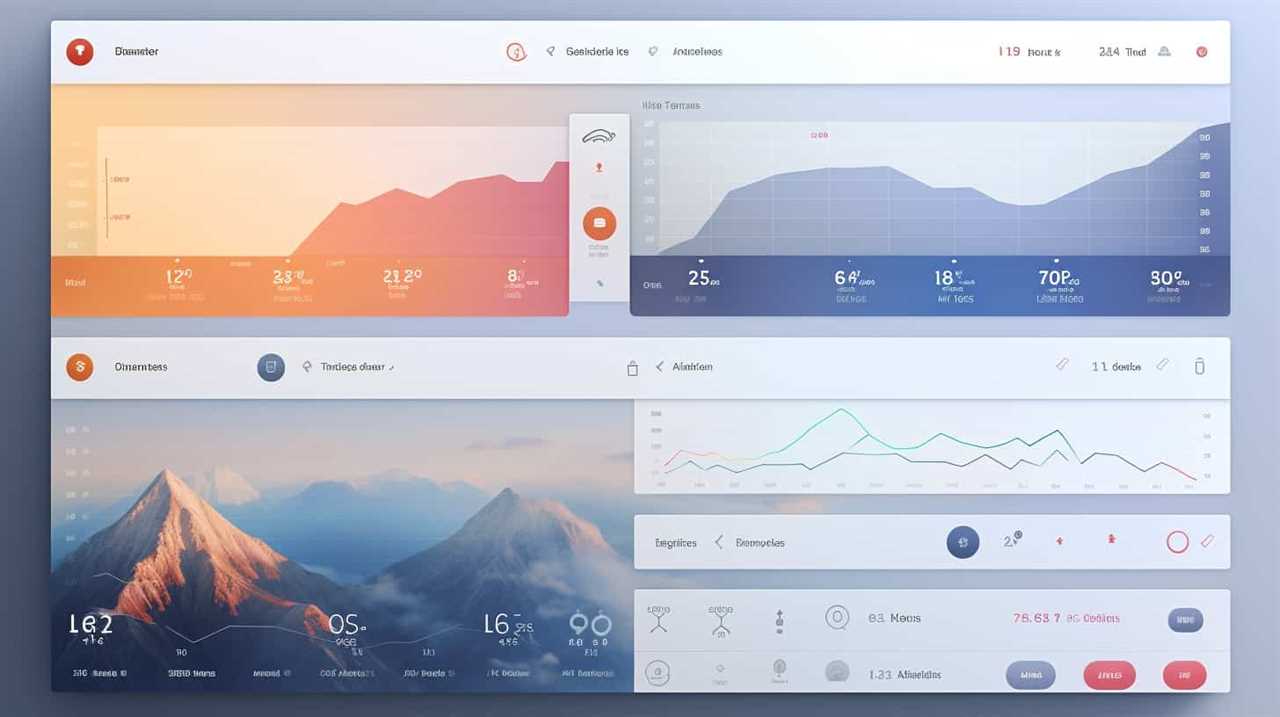Ready to dominate **keyword research** like a pro? 8 powerful strategies to level up your skills are coming your way. Start mastering the game now to see significant results!
From understanding the ins and outs of the creative industry to analyzing competitor keywords, we’ll guide you through every step.
With our expert advice, you’ll be able to brainstorm relevant keywords, optimize your website content, and track your keyword performance.
Get ready to refine your strategy and reach new heights in keyword mastery.

Key Takeaways
- Embracing diversity and inclusion is crucial for the future of the creative industry.
- Adapting and innovating are necessary for the creative industry to stay relevant.
- Understanding consumer behavior and market segmentation are key factors in effective keyword research.
- Keyword research tools provide valuable insights into search trends and user behavior.
Understand the Creative Industry
We delve into understanding the creative industry by exploring its unique dynamics and uncovering valuable insights.
The creative industry faces numerous challenges that require a strategic and analytical approach to overcome. One of the key challenges is the ever-changing landscape of technology and digital platforms. As technology continues to advance, the creative industry must adapt and innovate to stay relevant.
Additionally, the future of the creative industry lies in its ability to embrace diversity and inclusion. By incorporating different perspectives and ideas, the industry can create more impactful and inclusive content.
Furthermore, the rise of artificial intelligence and automation poses both opportunities and threats to the creative industry. While AI can enhance efficiency and productivity, it also raises concerns about job security and the human touch in creative processes.

Identify Your Target Audience
When it comes to creative keyword research, understanding your target audience is crucial. By analyzing demographics and interests, we can gain valuable insights into the preferences and behaviors of our potential customers.
Additionally, finding niche markets allows us to tailor our content and keywords to a specific group of people who are more likely to engage with our brand.
Demographics and Interests
Identifying the target audience’s demographics and interests is crucial for effective keyword research. Understanding consumer behavior and market segmentation are key factors in this process. By analyzing demographic data such as age, gender, location, and income, we can gain valuable insights into who our target audience is.
This information helps us tailor our keyword research to better align with their needs and preferences. Additionally, understanding their interests and hobbies allows us to create content that resonates with them on a deeper level. By identifying the specific topics and themes that interest our audience, we can uncover valuable keywords that will attract more relevant traffic to our website.

Incorporating demographics and interests into our keyword research strategy ensures that we’re targeting the right audience and maximizing our chances of success.
Finding Niche Markets
To continue our exploration of effective keyword research, let’s delve into the process of finding niche markets by identifying our target audience.
In order to maximize our chances of success, it’s crucial to focus on profitable niche markets and uncover untapped market opportunities. By understanding the specific needs, preferences, and behaviors of our target audience, we can tailor our marketing strategies and create compelling content that resonates with them.
Conducting thorough market research, analyzing industry trends, and studying competitors can help us identify gaps in the market and find niche markets with high potential for growth and profitability. By honing in on these niche markets, we can position ourselves as experts and cater to the unique needs of our target audience.

Now that we’ve identified our target audience and niche markets, let’s transition into the next step: brainstorming relevant keywords.
Brainstorm Relevant Keywords
Our team actively collaborates to generate a wide range of relevant keywords during the brainstorming process. Keyword generation techniques are employed to ensure a comprehensive list that captures the essence of our target audience’s search intent. To accomplish this, we implement long tail keywords, which are more specific and have lower competition.
When brainstorming relevant keywords, we follow these strategies:
- Researching industry-specific terms and jargon
- Analyzing competitor keywords to identify gaps and opportunities
- Utilizing keyword research tools to uncover related terms and variations
Use Keyword Research Tools
We enhance our keyword research process by leveraging powerful keyword research tools that provide valuable insights into search trends and user behavior. These tools are essential for developing effective keyword targeting strategies.

By using keyword research tools, we gain access to data such as search volume, competition level, and related keywords, which help us identify the most relevant and high-performing keywords for our content. These tools also enable us to analyze the performance of our chosen keywords over time, allowing us to make data-driven decisions and continually optimize our keyword targeting strategy.
Furthermore, keyword research tools help us understand user intent and behavior, providing valuable insights that can inform our content creation and marketing efforts. With these tools, we can stay ahead of the competition and ensure our keyword research strategies are yielding the best results.
Next, we’ll discuss how to analyze competitor keywords to further enhance our keyword research process.
Analyze Competitor Keywords
Moving forward in our keyword research process, an essential step is analyzing competitor keywords. By examining the keywords that your competitors are targeting, you can gain valuable insights and uncover new opportunities for your own SEO strategy.

Here are some competitive keyword analysis techniques to help you get started:
- Conduct a competitor keyword analysis using tools like SEMrush or Ahrefs to identify the keywords that your competitors are ranking for.
- Analyze the search volume and competition level of these keywords to determine their potential value and difficulty.
- Look for gaps and opportunities in your competitors’ keyword strategies, and leverage competitor keyword data to optimize your own content and target new keywords.
Optimize Your Website Content
To optimize our website content, we need to strategically incorporate the keywords we’ve identified from competitor analysis. One effective strategy is implementing keyword clustering, which involves grouping related keywords together to create a more focused and comprehensive approach to content creation. By organizing our content around clusters of keywords, we can provide valuable information to our audience while improving our website’s search engine visibility.
Additionally, leveraging long tail keywords can further enhance our optimization efforts. These longer and more specific keyword phrases allow us to target niche audiences and attract highly qualified traffic to our website. By integrating both keyword clustering and long tail keywords into our content strategy, we can maximize our website’s visibility and increase our chances of attracting the right audience.
Track and Measure Keyword Performance
As we continue to optimize our website content, it’s important to regularly track and measure the performance of our keywords. By doing so, we can gain valuable insights into how our keywords are performing and make informed decisions to improve our keyword strategy.

Here are some techniques for improving keyword performance metrics:
- Utilize keyword performance tracking tools: These tools can provide valuable data on keyword rankings, search volume, and competition. By using these tools, we can identify keywords that are performing well and those that may need improvement.
- Analyze keyword performance trends: By monitoring keyword performance over time, we can identify trends and patterns. This can help us understand which keywords are driving the most traffic and conversions, and which ones may need to be optimized or replaced.
- Experiment with different keyword variations: By testing different variations of our keywords, we can see which ones perform best. This can help us refine our keyword strategy and target the most effective keywords for our audience.
Tracking and measuring keyword performance is essential for optimizing our website content and improving our overall search engine rankings. By using keyword performance tracking tools and implementing effective techniques, we can continually refine our keyword strategy and increase our online visibility.
Continuously Update and Refine Your Keyword Strategy
In order to stay ahead in the ever-changing landscape of search engine optimization, we must consistently update and refine our keyword strategy. As keywords play a crucial role in driving traffic and attracting the right audience to our website, it is essential to keep our strategy up-to-date. Here is a visual representation of ideas on how to continuously update and refine our keyword strategy:
| Step | Description | Benefits |
|---|---|---|
| 1 | Conduct regular keyword research | Stay relevant in the industry |
| 2 | Analyze competitor keywords | Identify gaps and opportunities |
| 3 | Monitor keyword performance | Optimize for high-converting keywords |
| 4 | Incorporate long tail keywords | Increase visibility and target specific audience niches |
Frequently Asked Questions
How Can I Determine the Level of Competition for Specific Keywords in My Industry?
To determine the level of competition for specific keywords in our industry, we follow best practices and utilize tools for keyword competition analysis. It is crucial to stay strategic, analytical, and concise while mastering this process.

What Are Some Effective Ways to Optimize My Website Content for Better Keyword Rankings?
To optimize website content for better keyword rankings, we implement long tail keywords for niche targeting and incorporate keyword variations to capture a wider audience. This strategic approach ensures mastery and attracts more organic traffic.
Is It Possible to Track and Measure the Performance of Individual Keywords Over Time?
Yes, we can track and measure the performance of individual keywords over time. It allows us to analyze their effectiveness and make data-driven decisions to optimize our website content for better keyword rankings.
Are There Any Specific Keyword Research Tools That Are Recommended for Creative Industries?
There is a plethora of keyword research tools available for creative industries. To find unique keywords, we recommend utilizing tools like SEMrush, Google Keyword Planner, and Ahrefs. These tools provide valuable insights and help enhance our strategic keyword research process.
How Often Should I Update and Refine My Keyword Strategy to Ensure Its Effectiveness?
We update and refine our keyword strategy regularly to ensure its effectiveness. We understand the importance of long tail keywords and strive to strike a balance between keyword density and user-friendly content.

Conclusion
In the vast landscape of keyword research, we must navigate through the creative industry with a compass of understanding and a map of relevant keywords.
By identifying our target audience and brainstorming with fervor, we unlock a treasure trove of possibilities.
Armed with keyword research tools, we analyze our competitors and optimize our website content.
With diligence, we track and measure our keyword performance, and continuously update and refine our strategy.

Like skilled sailors, we chart our course to keyword success.










